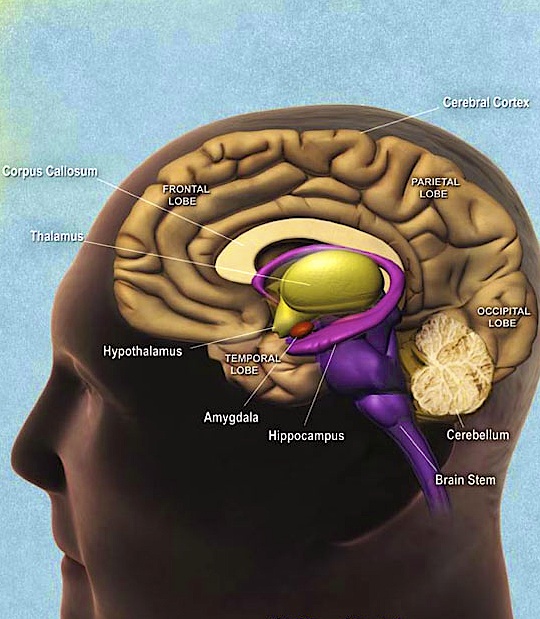There is a growing body of evidence that demonstrates acupuncture's incredible effect on anxiety and depression. Read about the newest research below - and then call Health On Point to experience it for yourself.
New lab experiments reveal acupuncture has antidepressant effects. An examination of brain cells following acupuncture treatments uncovered important mechanisms by which acupuncture exerts its antidepressant effects. Acupuncture caused the regulation of brain cell activity associated with therapeutic results.
The researchers discovered that acupuncture exhibits regulatory effects on special brain cells in the hippocampus called neural progenitor cells (NPs). These cells contribute to the maintenance of the brain and spinal cord. A major function of NPs is in the replacement of damaged or dead cells. Injured cells activate NPs to differentiate into the target tissue. NPs vary slightly from stem cells because they are more specific and tend to differentiate into a specific type of cell.
The researchers cite numerous studies showing “that acupuncture is an effective remedy for depression and it may be as effective as antidepressant drugs.” They also note that electro-acupuncture increases neurogenesis in the hippocampus as do SSRIs (serotonin reuptake inhibitors), a class of antidepressant medications. Neurogenesis is the process by which neurons are generated from neural stem and progenitor cells.
The focus of this new study was to map the precise cellular mechanisms responsible for the antidepressant effects of electro-acupuncture. Prior research shows that electro-acupuncture restores proliferation of NPs in the brain when impaired by depression. The focus of this study was a more precise measurement of specific biochemical actions.
The findings revealed that electro-acupuncture applied to acupuncture points DU20 (Baihui) and GB34 (Yanglingquan) on a stress induced rat model group regulated two major subclasses of NPs, quiescent neural progenitors (QNPs) and amplifying neural progenitors (ANPs). The researchers demonstrated that chronic unpredictable stress induced behaviors associated with depression and anxiety in the rat model group. The stress caused cell death of QNPs and “impaired the proliferation of both ANPs and QNPs” in the group. Electro-acupuncture “alleviated depressive-like and anxiety-like behaviors in the rat” group, restored proliferation of ANPs and limited cell death of QNPs. This caused a preservation of NPs in the hippocampus. 

The researchers note, “The present study revealed that chronic EA (electro-acupuncture) treatment exerted significant antidepressant effects in a rat model of depression. Further, the mechanisms underlying antidepressant effects of EA were associated with preserving the QNPs from apoptosis and ameliorating the impaired ANPs proliferation in hippocampus.” They note that the work conclusively demonstrates that electroacupuncture is “beneficial to the division of hippocampal NPs.” Further, the researchers note that these findings are consistent with other investigations demonstrating that electro-acupuncture “promotes neurogenesis in different brain regions….”
The researchers note that NPs are important in hippocampal neurogenesis and that chronic induced stress decreases proliferation of NPs and manifests in declined neurogenesis. This decrease in the birth of new brain neurons is associated with both anxiety and depression. Electro-acupuncture exhibited the opposite effects of chronic induced stress by upregulating ANPs. The researchers suggest that this is an “underlying mechanism of antidepressant-like effects of EA (electro-acupuncture).”


No comments:
Post a Comment